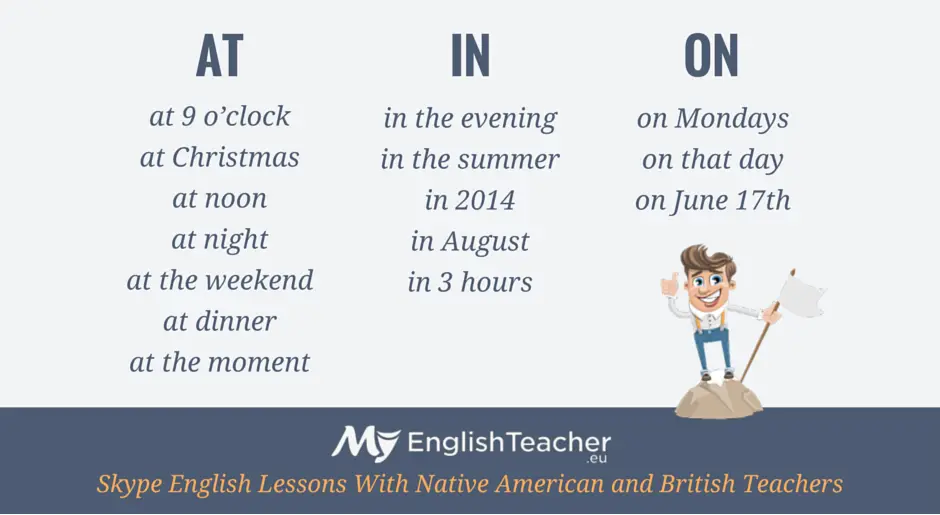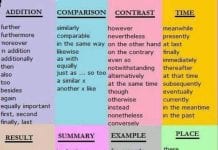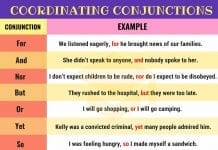As an English teacher I often see prepositions used incorrectly. This happens even to upper Intermediate level students. Don’t worry, I am here to help with that.
As an English speaker you are probably aware that there is a difference between on and at and even in. Most students roll a dice to figure out which one to use. Well, put away your dice and let’s learn the difference between those three words.
I find it helpful to think of the definition of these prepositions. Just a reminder, a preposition is a part of speech that tells location in a sentence. So if you are talking about an object or person and you want to include a place, then a preposition can help with that.

A preposition is a word that connects a noun, pronoun, or noun phrase to some other parts of sentences.
Prepositions can be confusing and difficult for English learners, because there is no definite rule or formula for choosing the right preposition!
In the early stages of learning English, you should just try to identify a preposition when you’re reading or listening in English and recognise how it is used.
- to the supermarket
- at the dinner table
- on the sofa
- in an hour
- about myself
A preposition is used to show direction, location, time, or to introduce an object.
Some more examples are listed above!
AT
- at 9 o’clock
- at Christmas
- at noon
- at night
- at the weekend
- at dinner
- at the moment
IN
- in the evening
- in the Christmas holiday
- in the summer
- in 2014
- in August
- in 3 hours
ON
- on Mondays
- on that day
- on June 17th
Read more:
Why is the preposition IN used instead of FOR?
IN
So first, let us look at the word in. This word means surrounded by or encircled by. If you want to say something is encased or surrounded by anything, this is your go to preposition.
- Right now, I am in my room.
There are four walls, a ceiling and a floor. I am surrounded by the room.
This also works for cities and countries. Go ahead look outside. What country are you surrounded by? Then you are in this country!
- I am in the United States of America. I am in New York City.
What about water? Yes, that too.
- She is in the pool. She is in the ocean. He is in the lake or pond or bathtub.
Again, if you are surrounded by the location, then you are in that location.
If you say that you are in a door (I hope that you are not), then as a fluent English speaker, I understand that you have broken the door and you are somehow trapped in the door.
Here are some more examples:
- I am in bed. (The covers are over me or I am under a blanket).
- You can find the answer in the book. (The answer is surrounded by the book, this is easier to imagine if the book is closed).
- He looks so cute in the picture. (The outline or frame of the photo is surrounding him).
- Betty is in school. (This means that she is a student and not physically at the school).
Skype English Lesson with a native AMERICAN or BRITISH teacher ››
ON
Now let’s talk about on as a preposition. For me, the word on means specific location. I am not talking about being surrounded by something. I am focusing on a more specific location.
For example
- I am in my room, but I am on a chair.
I have given you a more specific location to help you locate me.
Perhaps, you need to find keys that belong to someone. You ask them in English, Where are your keys? They will answer, The keys are on the table.
If they were to answer you like this, The keys are in the living room. It might take you a little longer to find those keys, since it wasn’t so specific.
Here are some more examples:
- I am on the bed. (I am NOT under the covers or blankets).
- Her office is on the third floor. (A specific location in the building).
I often hear my students tell me, My workbook is on my house. In English, this means that they have thrown their workbook on top of their house, on the roof. Why did they do that?
- Well, thankfully they did not throw it on their house. They meant to say, My workbook is at my house.
AT
This brings me to the next preposition at. At means general location. If the place that you are talking about is big, like an airport, hotel or even your house (with many rooms and locations) then you should use at.
This lets the listener know your general location.
For example
- My wife calls and says, Where are you?.
- I would answer, I am at home. (Or even I am home)
If she wanted to know more specifically, (for example, she is home and she can’t find me) she would say, Yes, but where in the house?.
I would respond, I am in the kitchen.. The preposition in lets her know that I am surrounded by the kitchen and if she wants to find me, then she can go there.
We can use at for the following situations:
- They are at the beach. (This is a big location).
- They are at the airport.
- I am at the hotel or conference.
- Sara is at work. (This lets me know her general location).
- Someone is at the door. (There are many different places someone can stand while next to a door. Just move 1 cm and you are at a “new” location.
- Bob is at school. (You can go to this school and you will find Bob there).
Now, at can also be used for time. I argue that the position of the earth and the sun are at a general location (given the huge size of the two objects). This is just my way of simplifying the way to remember when to use the preposition at.
You can still think of the definition for at as a general location for time.
- So, I have English class at 8am.
BUT
- I have English class on Tuesday. (It is a specific day of the week).
- I love to relax on the weekend. (It is a specific part of the week).
- My birthday is on December 7th. (This is a specific day in December).
- My birthday is in December. (My birthday is on the 7th, but it is surrounded by the other days in the month.
- I was living in France in 2007. (The entire year of 2007 was surrounding the time that I lived in France).
- I have breakfast in the morning. (Morning starts from about 6am until 11:59, I am looking at you McDonalds).
So we use the preposition “in” because this is a time that is surrounding you during that time period.
The same goes for afternoon and evening.
Night is different because the darkness is changing (you know with daylight savings time and such). So you say “at” when using night.
- Please, be careful when driving at night.
- There are some other things to keep in mind when talking about time.
Let us say that you want to plan a brunch Monday morning. Because we have the specific day of the week “Monday”, we give preference to that word and the preposition is on.
- I will have brunch on Monday morning.
Here are some more examples:
- She went dancing on Saturday night.
- They went to a restaurant on Friday evening.
When talking about future time (you know what you plan to do later), be sure to use the preposition in.
For example
- I will see you in two weeks.
- She will graduate in 4 years.
TRANSPORTATION
When talking about TRANSPORTATION, the two prepositions on and in follow different rules. Don’t worry, they are pretty simple.
ON: When you CAN WALK around on the transportation.
The idea here is if the mode of transportation has enough room to walk around, then use on.
For example:
- I was on the plane when you called me. (There is enough room on a plane to walk around).
- I was on the bus yesterday. (Again, there is sufficient room to be able to move around with your feet on a bus).
IN: When you can NOT WALK around on the transportation.
If the vehicle too small to walk around, then you need to use in.
For example
- Get in the car. (There is not enough space in a car to walk around).
- Please, be careful when you get in the taxi.
The opposite follows the same rule. The opposite of ON = OFF.
- So you get off a bus.
The opposite of IN = OUT
- So you get out of a car.


























You are a really good teacher!
I like ur english lessons.
Thank you so much Fathma!
really well explained, thank you!
Nice 🌷
Thank you 😍
Here is how I see it:
if you are moving from a position outside a car to a position inside a car, one would not use a preposition of place but a preposition of movement.
Getting in a car is not grammatically correct. Getting what in a car? “get” is either a transitive verb and requires a direct object, or it’s an intransitive verb that requires an adjective to define the new state attained by its subject.
One gets into a car, because there is movement involved; “in” is not a preposition of movement. I am in the car. I got into the car and now I’m in the car. Or I got cold in the car because the heater doesn’t work.